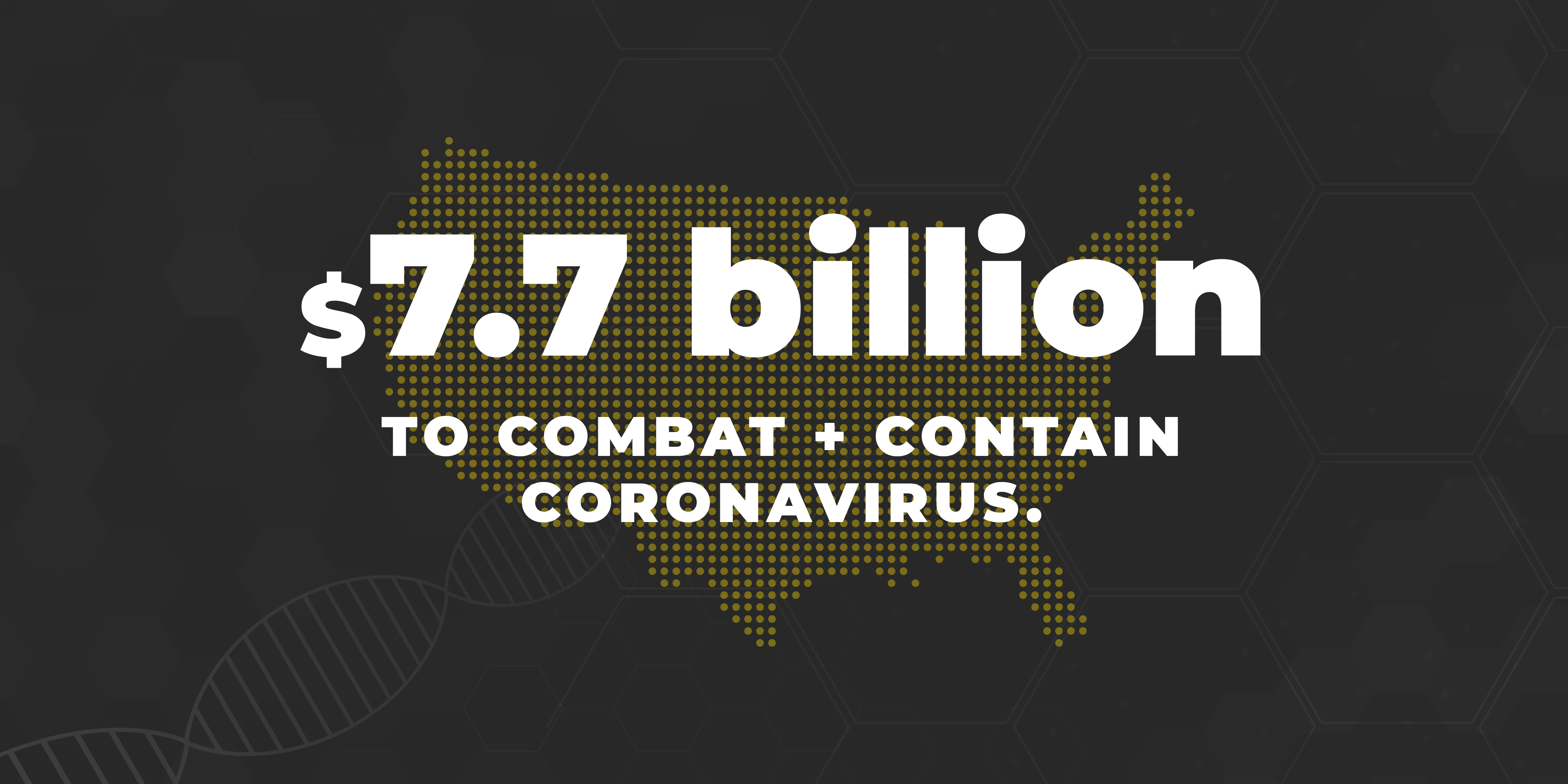|
As of this morning, the Indiana State Department of Health (ISDH) has confirmed the first Hoosier case of coronavirus. Under the leadership of Governor Holcomb, the state, in coordination with our medical community, was prepared and ready to respond. To further help our state and local governments in the days to come, I voted to pass $7.7 billion in emergency supplemental funding which has now been signed into law. I urge Hoosiers to continue following ISDH’s guidance to prevent the transmission of coronavirus, including washing your hands and staying at home if sick. I will continue to work closely with our state and local officials as the situation unfolds.
On Wednesday, the Centers for Disease Control (CDC) announced that Indiana will receive $250,000 for activities like monitoring of travelers, data management, lab equipment, supplies, staffing, shipping, infection control, and surge staffing.
On my website, you’ll find current information about the coronavirus and steps being taken at the federal level to ensure Americans are prepared.
It is important to take daily precautions to prevent the spread of germs, including:
- Washing hands regularly.
- Reducing contact with individuals who are sick.
- If you are feeling sick please stay home and get in touch with a medical professional.
- Be diligent about wiping down surfaces with disinfectant to kill virus causing germs.
Hoosiers are encouraged to learn more about transmission, prevention, and treatment here.

Additional Background:
In December 2019, a newly discovered respiratory virus caused an outbreak in Wuhan, China. Similar to the common flu, the coronavirus is thought to be transmitted from person-to-person via close contact or through droplets when a person sneezes or coughs. It may also be spread through contact with infected surfaces or objects. According the Centers for Disease Control and Prevention, symptoms include: fever, cough, sore throat, difficulty breathing, and a general feeling of being unwell.
On January 29, I urged the World Health Organization (WHO) to declare the international coronavirus outbreak a public health emergency of international concern (PHEIC). On February 11, the World Health Organization announced an official name for the disease that is causing the current outbreak of coronavirus disease, COVID-19.
Guidance for Travelers from the U.S. Department of State:
Due to the current public health situation, many countries have begun implementing strict screening procedures in order to prevent the spread of the COVID-19.
- Any U.S. citizen returning to the United States who has been in Hubei province, China in the previous 14 days may be subject to up to 14 days of quarantine.
- Any U.S. citizen returning to the United States who has been in the rest of mainland China within the previous 14 days may undergo a health screening and possible self-quarantine.
- Please read these Department of Homeland Security supplemental instructions for further details.
- U.S. citizens are encouraged to monitor media and local information sources and factor updated information into personal travel plans and activities. You may also follow us on Twitter and Facebook.
- If you travel, you should enroll in the Smart Traveler Enrollment Program to receive updates.
- South Korea is now under a Level 3: Reconsider Travel advisory from the State Department, with the region of Daegu under a Level 4: Do Not Travel advisory.
- Italy is now under a Level 3: Reconsider Travel advisory from the State Department, with regions of Lombardy and Veneto under a Level 4: Do Not Travel advisory.
- Iran has been listed under a Level 4: Do Not Travel advisory from the State Department, and those present in Iran should exercise increased caution due to the COVID-19 outbreak.
- Travelers to Hong Kong and Japan are advised to exercise increased caution due to COVID-19.
The U.S. Department of State has also issued the following recommendations for U.S. citizens traveling abroad:
- Avoid travel to China. The Department of State’s Travel Advisory for China is currently a Level 4- Do Not Travel to China due to novel coronavirus.
- Avoid contact with sick people.
- If you decide to travel to China discuss your travel with your healthcare provider. Older adults and travelers with underlying health issues may be at risk for more severe disease.
- Avoid animals (alive or dead), animal markets, and animal products that originate from China (such as uncooked meat).
- Wash hands often with soap and water for at least 20 seconds. Use an alcohol-based hand sanitizer if soap and water are not available.
- Follow local authority instructions.
- Closely monitor Travel.state.gov and CDC.gov for important information.
Resources:
The links below provide additional information about coronavirus, including important steps Hoosiers can take to prevent the spread of the disease:
- Guidance on Prevention and Control
- Guidance for Travelers
- Guidance for Ships
- Transmission
- Information for Health Care Providers
- Guidance for Emergency Medical Services (EMS) and 911 Public Safety Answering Points (PSAPs)
- Symptoms & Complications
- Information for Laboratories
- 2019-nCoV Infection Control Guidance
- Frequently Asked Questions and Answers
- CDC Fact Sheets:
- What You Need to Know, English, Simplified Chinese, Spanish
- What To Do If You Are Sick, English, Simplified Chinese, Spanish
- What the Public Should Do, English
- Stop the Spread of Germs, English, Simplified Chinese, Spanish
- Indiana State Department of Health: https://bit.ly/2tOAoiJ
- World Health Organization: https://bit.ly/2RA0VJu
- U.S. State Department Travel Information: https://bit.ly/3aULIKA
I will continue to provide updates as we learn more about the coronavirus. For the latest information, please visit my website and subscribe to my newsletter here.
|